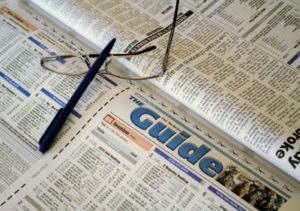 If you’re on this site then there’s a very good chance that you place bets every now and then. You’ll know that bookmakers are the place to head if you’re wanting to place a sports wager and you’ll also be aware that they have margins built in to the odds that they offer you. What you might not be too clear on is how they come up with the odds that they put on their sites or in their shop windows, perhaps thinking it’s all done by computer.
If you’re on this site then there’s a very good chance that you place bets every now and then. You’ll know that bookmakers are the place to head if you’re wanting to place a sports wager and you’ll also be aware that they have margins built in to the odds that they offer you. What you might not be too clear on is how they come up with the odds that they put on their sites or in their shop windows, perhaps thinking it’s all done by computer.
Whilst this is true to an extant, the actual answer is that odds traders help them decide upon the odds that they offer. Sometimes referred to as odds compilers, their job is a complicated one but ultimately rewarding. They’re also entitled to place bets themselves, so they’ll know when the market is undervaluing a team or player. Their base salary starts at a little over £30,000, but what sort of skills do they have?
Odds Traders Explained
 When there is a market that people want to bet on, someone has to come up with the odds for that market. That is the job of an odds trader. They spend their time gathering as much information as they can, analysing it and then using their knowledge to decide upon certain decisions. It is not a straightforward professional, largely because the world of sports isn’t straightforward. Some sports are heavily statistical, others aren’t.
When there is a market that people want to bet on, someone has to come up with the odds for that market. That is the job of an odds trader. They spend their time gathering as much information as they can, analysing it and then using their knowledge to decide upon certain decisions. It is not a straightforward professional, largely because the world of sports isn’t straightforward. Some sports are heavily statistical, others aren’t.
As an example, football might well have statistical elements to it, but those alone can’t be allowed to dictate a market. Manchester City might be one of the best teams in the country because of the money that the club has spent, but what if some of their key players have been injured heading into a match? What if they’ve got a Champions League semi-final match either side of a Premier League game?
They’re the sort of things that an odds trader has to take into account. Their insight and knowledge of a sport is just as important as the straight-forward statistics that they can find out about any given event. There’s also the fact that the world of odds is far from a static one. For starters, the situation that they’ve come up with their odds for might change because of an injury or a player sale, say.
On top of that, odds move because of the amount of money in a market. A bookmaker might have taken a flurry of bets on one particular market, meaning that the odds trader has to think about the exposure of the company that they work for. They’ll need to shift and adjust their thoughts accordingly, moving the odds in order to ensure that the bookmaker isn’t facing a devastating loss.
Their importance to a bookmaker or sports betting company shouldn’t be downplayed. If someone gets in touch saying that they want to place a huge bet on a market, for example, then the bookmaker is going to speak to their odds trader to see whether or not it is a bet that they should accept. They also need to look at the rest of the market to make sure that they’re not out on a limb with the odds that they’re offering on any given outcome.
Smaller betting companies may not even have odds traders at all, instead they pull their odds in through a feed provided by a third-party company. Bigger betting companies will employ traders in house and these are the companies that come up with the odds first and then other smaller brands often copy them. A big brands, such as bet365 or William Hill, will have lots of traders, each specialising in different sports and markets.
The Required Skills Of An Odds Trader
 If you’ve read the above and thought that becoming an odds trader is something that you see in your future, the next thing that you’ll want to do is to consider whether or not you’ve got the skills required for the job. It should go without saying that an ability to handle sums is important, with mathematics being one of the chief skills odds traders must be able to demonstrate. Being able to understand odds and percentages is vital.
If you’ve read the above and thought that becoming an odds trader is something that you see in your future, the next thing that you’ll want to do is to consider whether or not you’ve got the skills required for the job. It should go without saying that an ability to handle sums is important, with mathematics being one of the chief skills odds traders must be able to demonstrate. Being able to understand odds and percentages is vital.
There’s also the fact that you’ll need to have a degree of interest in the market that you’re working with. That’s not to say that you need to be a failed professional footballer to work as an odds trader for the Premier League, but understanding what an indirect free-kick is would be a good start. Similarly, if you don’t know what the spread is, your use is going to be limited for a bookie offering odds on American football.
If you’re not a sports fan and don’t have any desire to learn how sports works, that’s not too much of a problem. There are other markets that you could work as an odds trader in, such as popular culture or the Royal Family. Do you have a sense of which actor might be hired to play James Bond next? Are you clued up on what colour hat the Queen is likely to wear to Royal Ascot? There are markets in which you can operate if so.
The other thing that you’ll need to be willing to do is to constantly be monitoring the markets. Any major shift will need to be accounted for in the odds, so you might need to be able to react to such a thing at short notice. Of course, the chances are that you’ll be working as part of a team, but operating in the world of odds markets means that you’re unlikely to ever be able to properly switch off, which can be hard work for some.
Computers Are Part Of The Process
 However talented odds traders are, there’s a world of sports out there, with countless different markets. That means that it would be physically impossible for odds traders to cope with everything on their own, even if they work in a reasonably large team. As a result, computers can take on the workload in certain aspects, with odds traders then used to monitor the various odds that the computers are producing.
However talented odds traders are, there’s a world of sports out there, with countless different markets. That means that it would be physically impossible for odds traders to cope with everything on their own, even if they work in a reasonably large team. As a result, computers can take on the workload in certain aspects, with odds traders then used to monitor the various odds that the computers are producing.
For a bit of a clue about why the use of computers is necessary, think about the In-Play market in the Premier League alone. On the final day of the season, for example, there will be ten different matches kicking off at the same time and countless available markets on offer in each of them. It’s much easier for computers to handle such markets, with odds traders used as monitors to ensure that there’s nothing too crazy being offered.
Even away from creating the actual odds, computers are used to monitor a rolling sense of the profit and loss that a bookmaker can expect to make over a period of time. If the profit dips too low, the odds traders can be called upon to figure out why and adjust things accordingly. They act as monitors as much as people dedicated to creating the odds themselves, which is a part of the job that not everyone will enjoy.
How To Get Into The Industry
 Now that we know what an odds trader’s work is likely to entail, it’s worth considering how they get into the industry in the first place. If it’s something that you’re interested in then one of the first places that you’ll want to start is on a betting exchange. Betting exchanges effectively allow you act as the bookmaker, with one party laying bets and another backing them. If you think you have what it takes to be an odds trader, you can practice there
Now that we know what an odds trader’s work is likely to entail, it’s worth considering how they get into the industry in the first place. If it’s something that you’re interested in then one of the first places that you’ll want to start is on a betting exchange. Betting exchanges effectively allow you act as the bookmaker, with one party laying bets and another backing them. If you think you have what it takes to be an odds trader, you can practice there
After that, the next thing you’ll want to do is rather obvious: keep an eye on job sites for roles that will give you an ‘in’ to working as an odds trader. Bookmakers will often promote their jobs in more specific places, but it’s a start. It’s also not unheard of for jobs to be advertised in such a manner, so keep scouring such sites to see if there are any jobs that seem to fit your particular skill-set.
What Do Odds Traders Earn?
 One of the key questions that many people will want an answer to comes in the form of what an odds trader is able to earn. According to industry insiders, a basic salary for an odds trader will come in at a little over £30,000 per year. That is the average, with some earning closer to £20,000 and others getting to more than £45,000. The important point to note is that there is a clear career path that odds traders can follow.
One of the key questions that many people will want an answer to comes in the form of what an odds trader is able to earn. According to industry insiders, a basic salary for an odds trader will come in at a little over £30,000 per year. That is the average, with some earning closer to £20,000 and others getting to more than £45,000. The important point to note is that there is a clear career path that odds traders can follow.
Most people will begin their career as a junior odds trader, moving up to become a trader. After that, senior traders can be expected to earn in the region of £80,000, with bonuses also possible at all levels of the career. The fact is that odds traders work at the core of the business, so the ability to move into other areas of the industry is clear. If you want a job with plenty of opportunities to progress, odds trader might be the one for you.
You Can Also Keep Betting
 One of the somewhat controversial parts of an odds trader’s profession is the fact that they are allowed to continue betting themselves. Most companies won’t let a trader bet with them, of course as this way they could alter the odds in their own favour or use insider information, but they can bet with other betting companies or via bet exchanges.
One of the somewhat controversial parts of an odds trader’s profession is the fact that they are allowed to continue betting themselves. Most companies won’t let a trader bet with them, of course as this way they could alter the odds in their own favour or use insider information, but they can bet with other betting companies or via bet exchanges.
Not everyone will think that this is fair, given that they’re the people coming up with the odds so they’ll be able to see the gaps in the market. Nevertheless, there is nothing to stop them from placing bets themselves, using all of the information that they’ve gained from their career.
Whilst some might object, the reality is that if odds traders place bets with normal bookmakers then the only people that they’re taking money off is the people that they might be working for. Things are different if they operate in the world of betting exchanges, but it’s not illegal for them to do it, even if it feels immoral. With traditional bookmakers, they’ll know what the margin is and when the odds have shifted in their favour.
